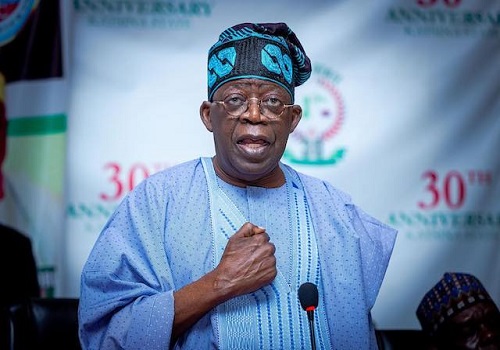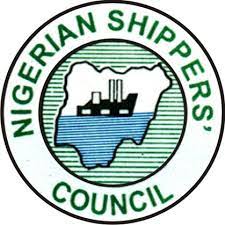NEWS
President Tinubu’s Address at the Nigeria Economic Summit

(AS DELIVERED BY VICE PRESIDENT KASHIM SHETTIMA)
Protocol
It is with immense pleasure that I address the 30th Nigerian Economic Summit. Over the past three decades, this Summit has been a forum for government and private sector stakeholders to exchange ideas, debate policy, and identify innovative solutions to Nigeria’s socio-economic challenges.
2.
The theme of this year’s Summit, “Collaborative Action for Growth, Competitiveness, and Stability,” could not be more appropriate, as it encapsulates the pressing need for concerted efforts to address the multidimensional issues we currently face. Like many other nations, Nigeria has experienced significant economic turbulence over the past few years. The challenges have been global and domestic—ranging from the COVID-19 pandemic and fluctuating oil prices to internal security issues, inflation, and structural weaknesses in our economy, such as over-reliance on oil revenue and lack of economic diversification.3. Distinguished Ladies and Gentlemen, Nigeria’s growth trajectory has been volatile, heavily dependent on oil revenues, and unable to create enough jobs to keep pace with our rapidly growing population. As a nation, we must prioritise economic diversification. Your role in this process is crucial. Considering this, my administration, through the Renewed Hope Agenda, has embarked on bold and courageous reforms designed to create an environment that fosters sustainable economic growth and shared prosperity. Our focus is on sectors that can offer inclusive and sustainable growth, such as agriculture, manufacturing, and the digital economy.
4. We have thus prioritised investments in critical infrastructure, enhanced our social safety nets, and promoted innovation across all sectors. I am pleased to report that we are making significant strides in addressing several key issues, including regulatory bottlenecks and ease of doing business challenges. This progress should instil confidence in our collective ability to overcome these challenges.
5. Our objective is to ensure that the Nigerian economy is inclusive, where small and medium-sized enterprises (SMEs) can thrive alongside large corporations, and where every citizen, regardless of location or background, can benefit from economic opportunities.
6. We have initiated various programmes, such as the MSME hubs and single-digit loans for manufacturers, designed to provide entrepreneurs with the support they need to succeed. We have also introduced the Credit Corporation to offer our workers consumer loans with single-digit interest. These initiatives collectively will boost the economy and ensure it remains competitive in Africa and globally.
7. Economic growth and competitiveness can only be sustained with political and economic stability. Since 2009, Nigeria has faced numerous threats to its stability, from security challenges to macro-fiscal imbalances. This government is fully committed to confronting these issues head-on. We are investing heavily in security operations to combat terrorism, banditry, and other forms of insecurity that threaten lives and livelihoods.
8. Distinguished Ladies and Gentlemen, we are also implementing fiscal reforms to stabilise the macroeconomic environment. Removing fuel subsidies, unification of forex rates, and debt management strategies are all part of a broader effort to restore economic balance and ensure long-term stability.
9. It is also important to note that stability is not just about managing crises as they arise. It is about building a resilient economy that can withstand shocks, ensuring the stability of the macroeconomic indicators and sustained growth trajectory. To achieve this, we must strengthen our social safety nets and ensure that the most vulnerable members of society are protected during tough times. We are already expanding programmes like the National Social Investment Programme (NSIP), National Poverty Reduction with Growth Strategy and other livelihood support initiatives critical to millions of Nigerians. However, we must do more to institutionalise these safety nets and make them a permanent feature of our economic architecture.
10. No single sector or stakeholder can address these challenges alone. What we need now, more than ever, is collaboration—where the public and private sectors, civil society, and international development partners collaborate to drive a shared vision for growth and development.
11. I want to emphasise that the challenges before us, while significant, are manageable and can be overcome. With the right policies, the right partnerships, and the right level of commitment, Nigeria can emerge stronger, more competitive, and more resilient.
The Nigerian Economic Summit remains invaluable for fostering the dialogue and collaboration needed to move our country forward. Let us use this platform to discuss and make actionable recommendations that will inform policy to drive growth, enhance competitiveness, and secure long-term stability for Nigeria.
12. On this note, I am honoured to declare the 30th Nigerian Economic Summit Open. I wish you fruitful deliberations.
13. Thank you for your attention, and may God bless the Federal Republic of Nigeria.
NEWS
NUJ Pushes for Media Enhancement Bill, Health Insurance for Journalists

The Nigeria Union of Journalists (NUJ) said it is working towards the passage of a Media Enhancement Bill to improve welfare packages for journalists across the country.
NUJ President, Alhassan Yahaya disclosed this on Wednesday during a media interactive forum organised by the Kano State Council of the union in collaboration with the State Ministry for Information and Internal Affairs in Kano.
The high-level media interactive dialogue was aimed at strengthening ethical standards and redefining public media narratives in the state.
Yahaya said the proposed legislation, already attracting sponsorship support from members of the House of Representatives, would address poor remuneration in the profession and enhance working conditions.
“We blow other people’s trumpets but not ours. It is time we stood firm and worked collectively to ensure the bill is passed,” he said.
Yahaya also advocated the introduction of health insurance for journalists, noting that less than one per cent currently have coverage.
“With a premium of N15,000 under the state health insurance scheme, journalists can access comprehensive healthcare from primary to tertiary levels, reducing out-of-pocket expenses and promoting universal health coverage,” he added.
The Kano State Commissioner for Information and Internal Affairs, Ibrahim Abdullahi-Waiya, said the state had embarked on wide-ranging reforms to strengthen media capacity, enhance transparency, and promote healthy communication between government and the citizens.
“These efforts, alongside stakeholder engagement and domestication of the Freedom of Information Act, have improved public information management and deepen civic participation,” Abdullahi-Waiya said.
He said the ministry had revived in-house publications, rehabilitated its library, and fostered cordial relations with media executives, political commentators and civil society groups.
NUJ Kano Chairman, Suleman Dederi, welcomed the A participants and emphasised the importance of engaging veteran journalists to improve professionalism in the state’s media space.
A former NUJ National President, Malam Sani Zoro, cautioned against the dangers of misinformation and the misuse of artificial intelligence, citing past examples of fabricated stories that went viral.
He urged the union to study global best practices, strengthen the International Institute of Journalism, and organise forums to address pressing professional and societal issues.
Stakeholders at the dialogue commended the Kano State Government for being widely acknowledged as the most media-friendly in Nigeria.
They cited significant investments in journalism-related infrastructure, human capital development, and clearance of pension arrears for retired journalists.
They recommended that similar dialogues be held quarterly, veteran journalists should mentor younger colleagues via online platforms, and continuous capacity-building programmes should be prioritised to enhance professionalism.
The event brought together veteran journalists, academics, and media practitioners to share experiences and review developments within the profession in Kano State and Nigeria at large.
NEWS
Tinubu Departs Abuja for Japan, Brazil Visits

President Bola Tinubu will depart Abuja on Thursday, August 14, for a two-nation trip to Japan and Brazil.
A statement by the presidential spokesman, Bayo Onanuga stated that the President will stop over in Dubai, United Arab Emirates, before proceeding to Japan.
According to the statement, in Japan, President Tinubu will attend the Ninth Tokyo International Conference on African Development (TICAD9) in the City of Yokohama from August 20 to 22.
With the theme “Co-create Innovative Solutions with Africa,” TICAD9 will focus on Africa’s economic transformation and improvements in the business environment and institutions through private investment and innovation.
It will also promote a resilient and sustainable African society for human security, peace, and stability.In addition to attending plenary sessions on themes linked to the conference, the Nigerian President will hold bilateral meetings and meet the chief executive officers of some Japanese companies with investments in Nigeria.
Initiated in 1993 by the Japanese government and co-hosted by the United Nations, UNDP, the African Union Commission, and the World Bank, TICAD is a triennial conference held alternately in Japan and Africa. The last one took place in August 2022 in Tunisia.
The forum fosters high-level policy dialogue between African leaders and development partners.
At the end of the TICAD9, President Tinubu will leave for Brasilia, the capital of the Federative Republic of Brazil, on a two-day state visit from Sunday, August 24, to Monday, August 25.
This follows an invitation by the Brazilian President, Luiz Inacio Lula da Silva.
While in Brazil, President Tinubu will hold a bilateral meeting with his host and attend a business forum with Brazilian investors.
His delegation—comprising key ministers and senior officials — will explore opportunities to strengthen cooperation and sign agreements and Memoranda of Understanding (MoUs) with the Brazilian government.
NEWS
Auto Crash Claims Two in Bayelsa

From Mike Tayese, Yenagoa
Two persons, a tricycle driver and his passenger (woman) were killed in a fatal road accident, along the Glory Drive roundabout, Etegwe, Yenagoa in Bayelsa State.
The multiple road crash, involving a Mack truck, a Silver colour salon car and a commercial tricycle popularly known as Keke Napep, which occurred Wednesday around 2.
05pm left others injured.According to eyewitnesses, the truck was at high speed when the driver lost control and rammed into the tricycle causing multiple crashes.
“The driver was moving too fast, and by the time he tried to swerve, it was already too late. The Keke had no chance,” said a trader, who witnessed the crash.
“The Keke driver and his passenger died on the spot, while others in the saloon car sustained injuries.
“The violent impact left the tricycle badly mangled. Good Samaritans rushed to the scene, pulling survivors from the wreckage and transporting the injured to the Federal Medical Centre, Yenagoa.
The bodies of the deceased were later evacuated and deposited at the morgue of the FMC while the truck driver is in police custody.
A Senior Officer of the Federal Road Safety Corps (FRSC) in Bayelsa, who spoke anonymously confirmed the accident.


















